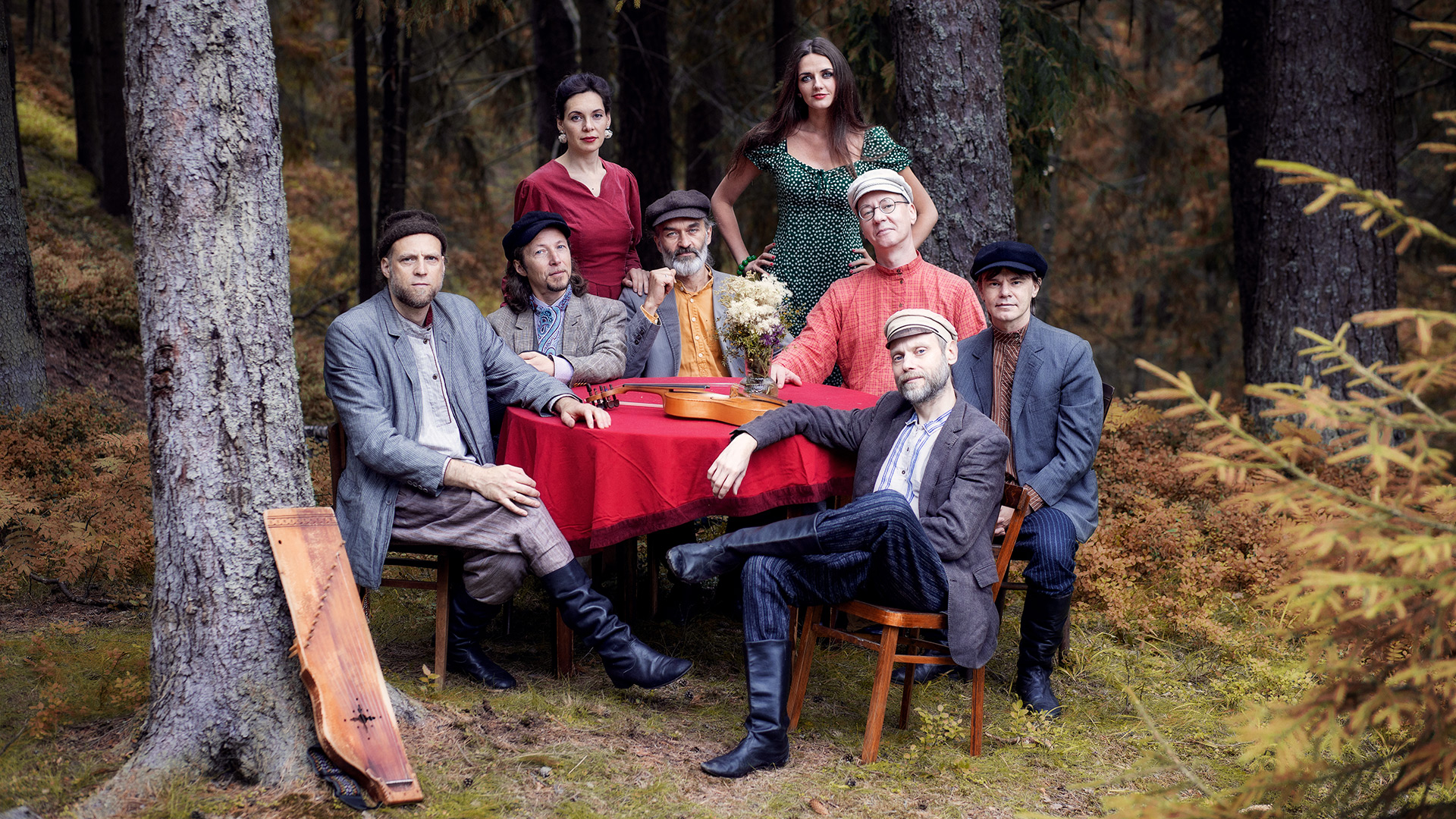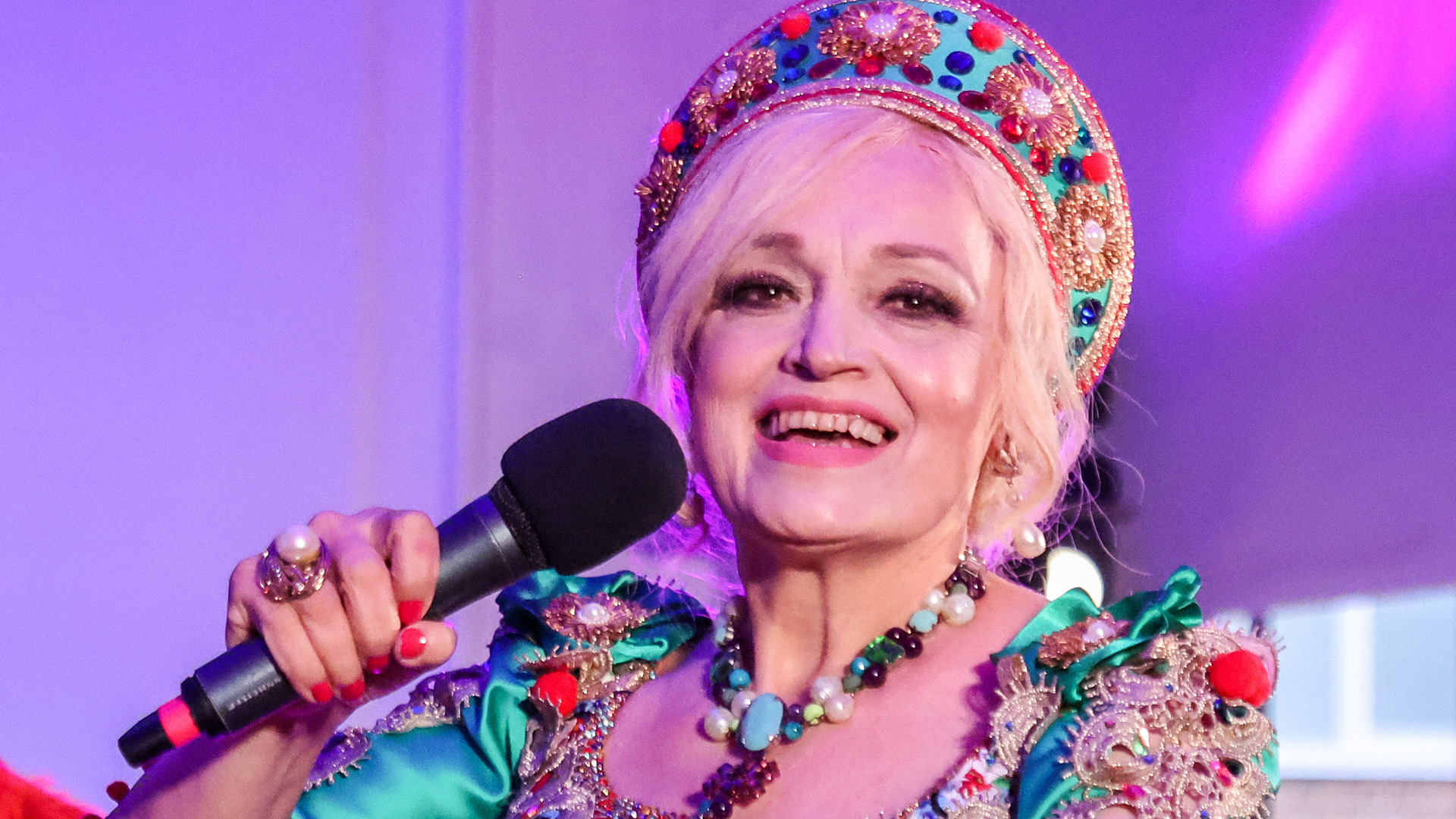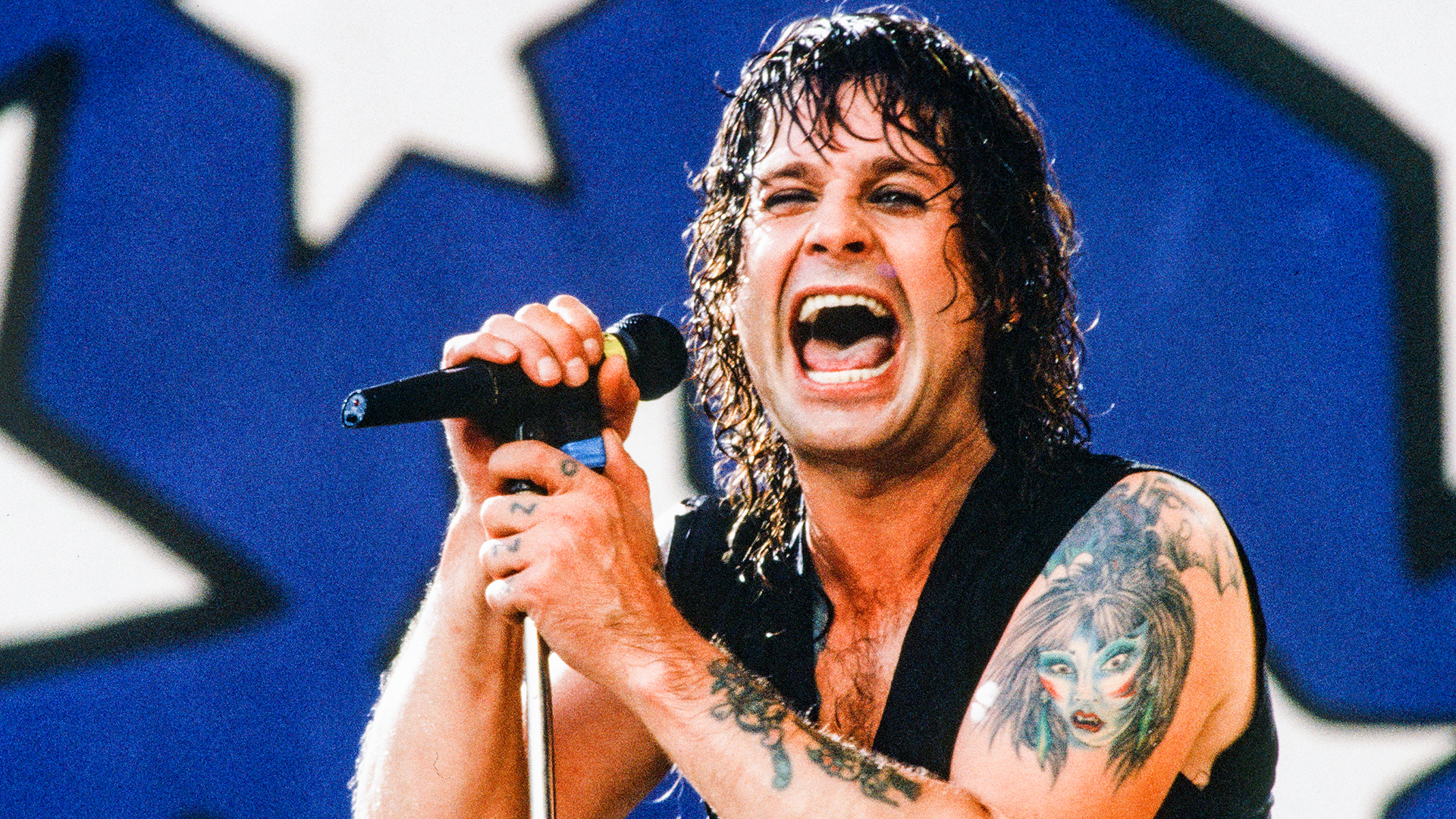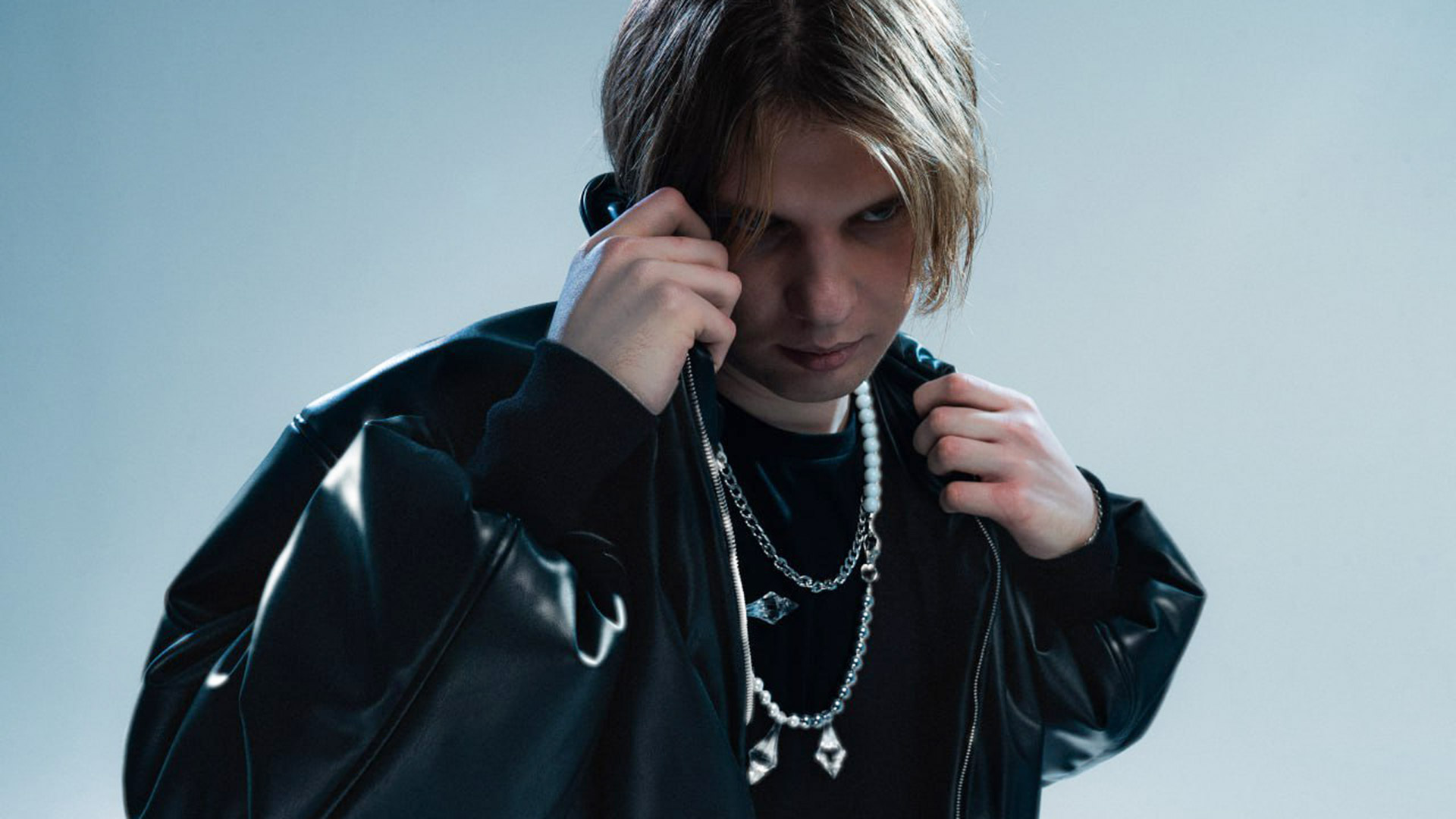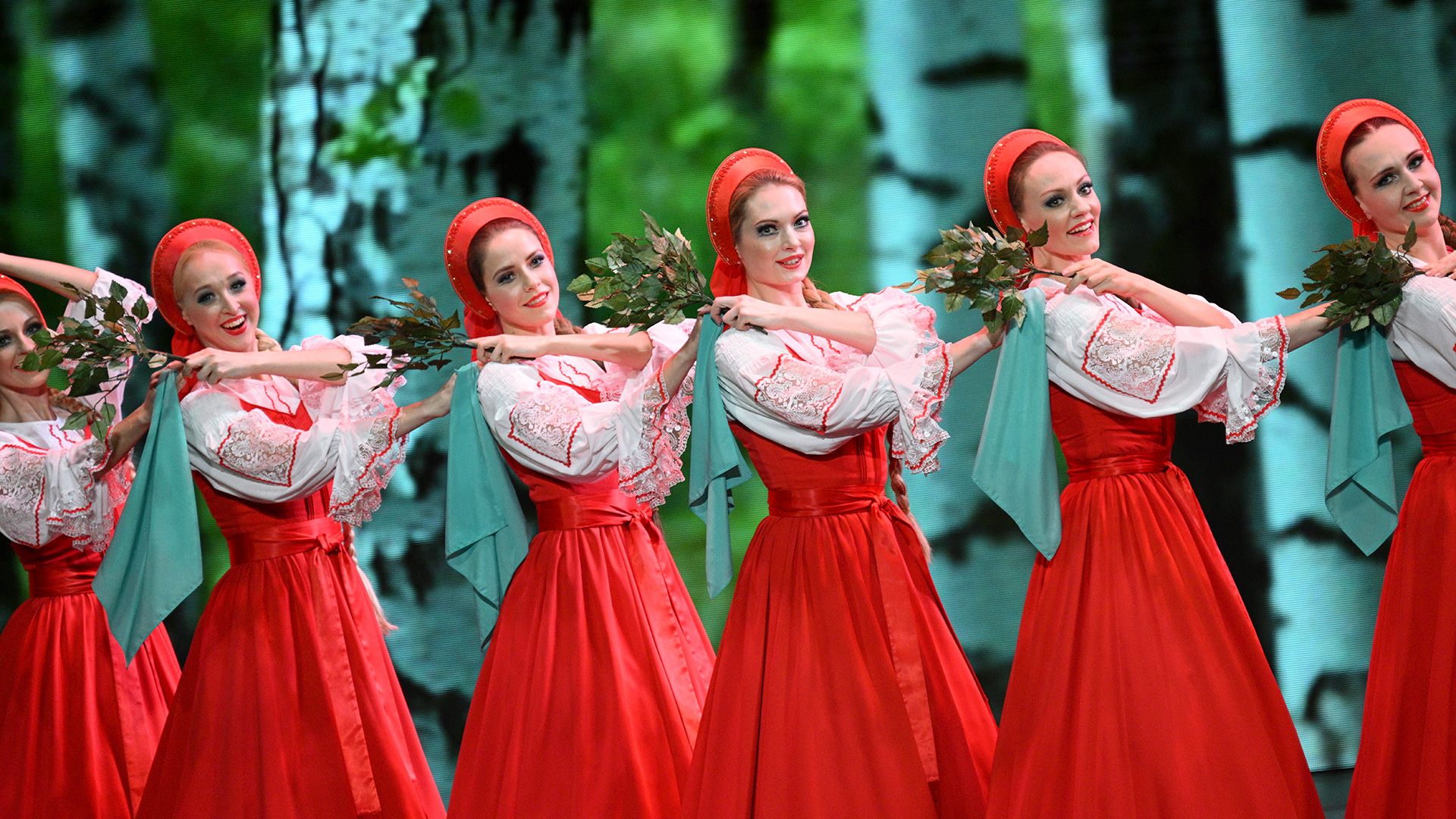
10 facts about iconic ‘Swan Lake’ ballet (PHOTOS)
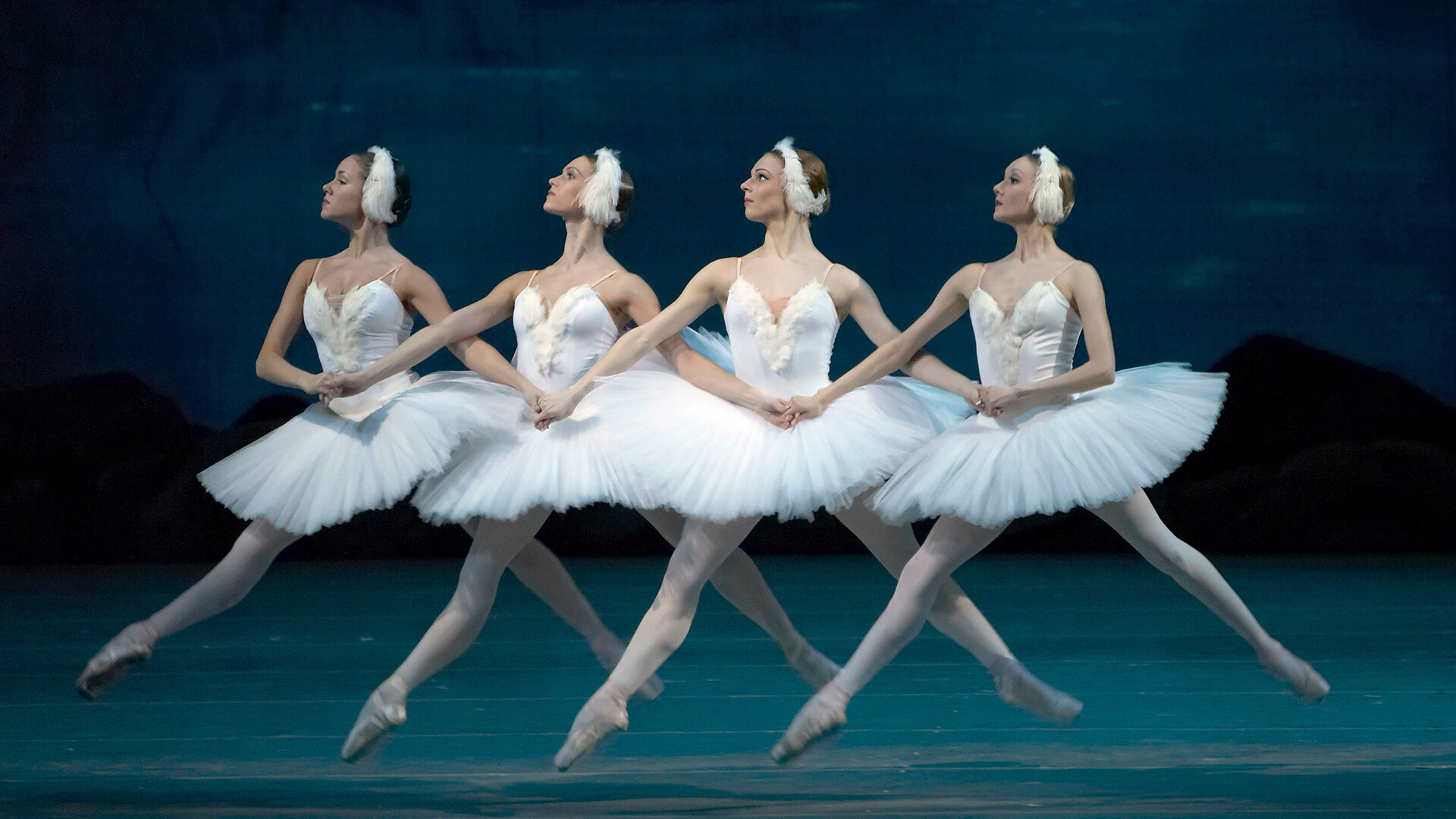
1. The first ballet of Pyotr Tchaikovsky
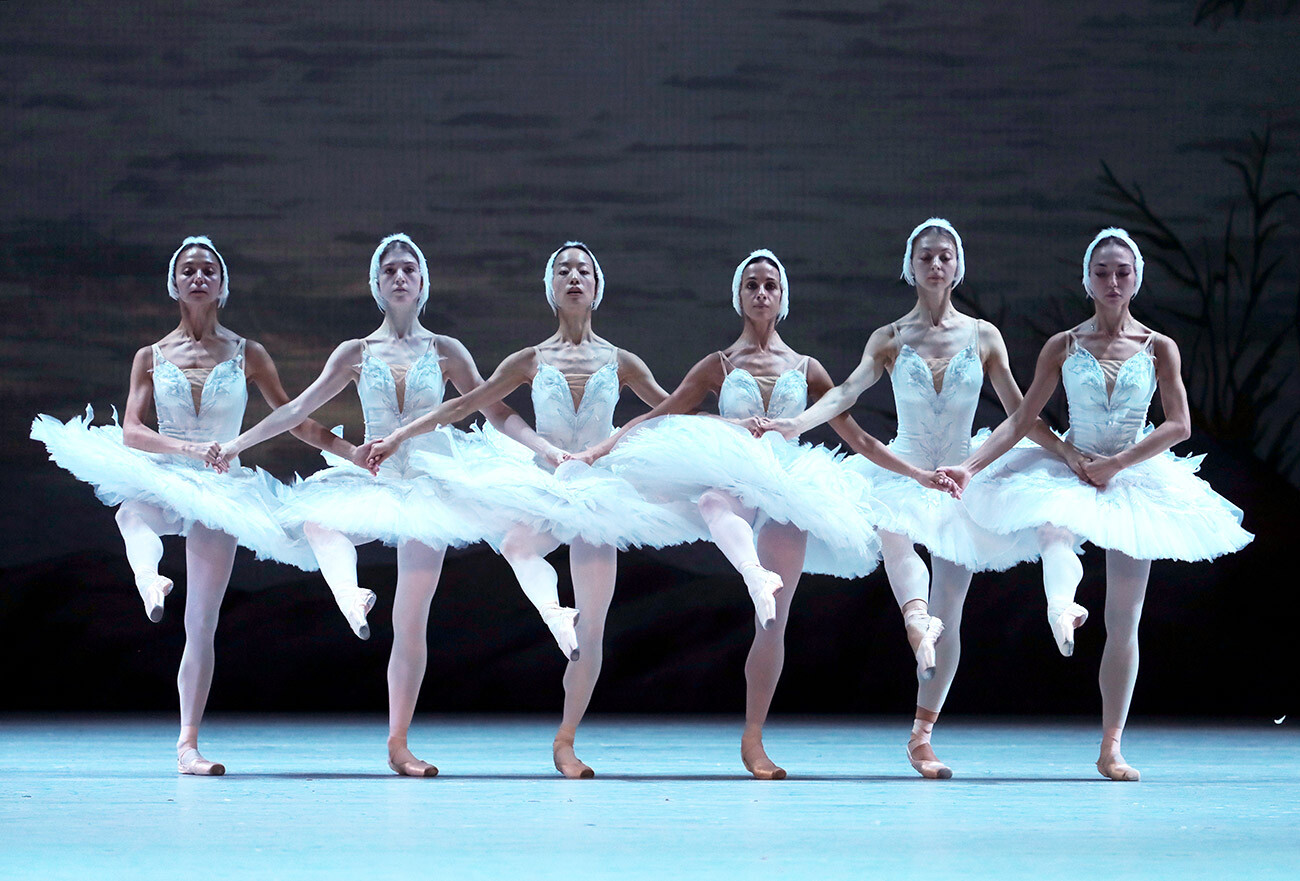 The Novosibirsk State Academic Theater of Opera and Ballet’s staging of Swan Lake, 2019
The Novosibirsk State Academic Theater of Opera and Ballet’s staging of Swan Lake, 2019
This is one of the most frequently staged ballets around the world. Pyotr Tchaikovsky wrote it in 1876 and it’s a kaleidoscope of very different melodies, dancing and folklore motifs.
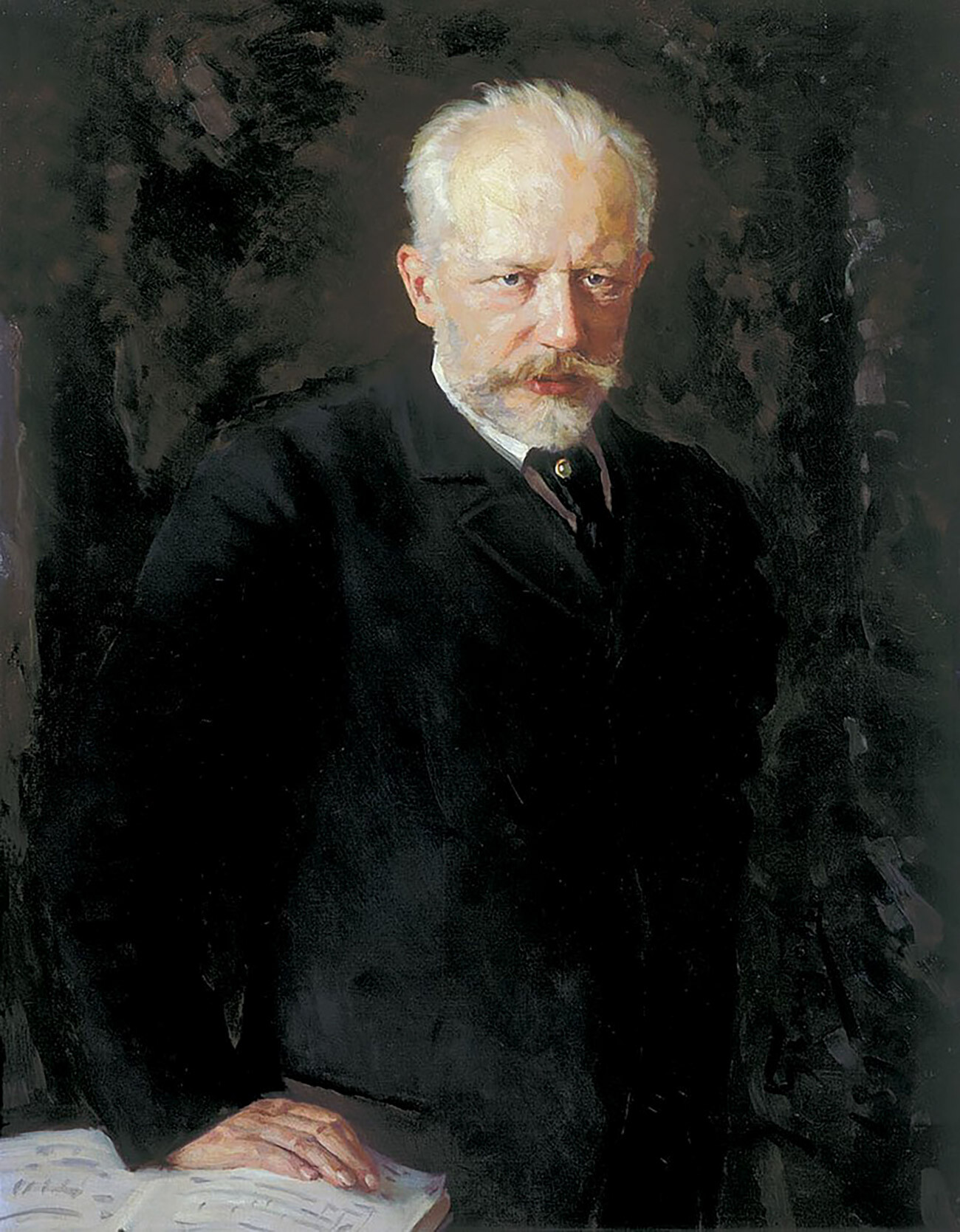 Portrait of Pyotr Tchaikovsky
Portrait of Pyotr Tchaikovsky
‘Swan Lake’ is one of three ballets by Tchaikovsky and the first to be written by him. The no less legendary ‘The Nutcracker’ and ‘Sleeping Beauty’ followed after.
2. It grew out of a home performance
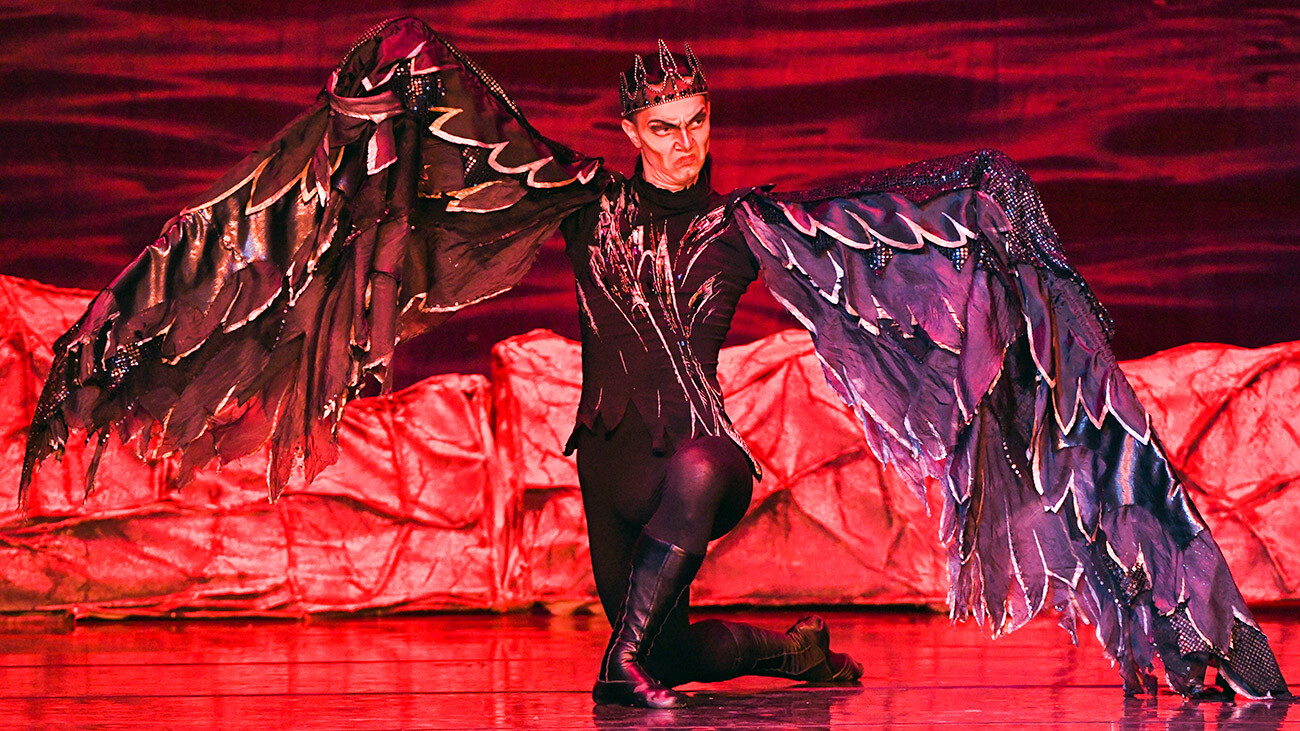 Evil sorcerer von Rothbart in a scene from Swan Lake ballet, Mari State Academic Opera and Ballet Theater’s staging, 2022
Evil sorcerer von Rothbart in a scene from Swan Lake ballet, Mari State Academic Opera and Ballet Theater’s staging, 2022
The idea for ‘Swan Lake’ was born from an amateur home performance, staged by the family of the composer. Tchaikovsky acted as director and choreographer, his sisters played the roles of the swans, while his brother – the role of the prince.
The fairy tale about a swan was conceived specifically for the ballet, although, undoubtedly, it has its roots in folklore and the fairy tales of the Brothers Grimm, for example. It’s believed that Tchaikovsky took part in the composition of libretto, as well. Playwright and director of the Moscow Imperial Theaters Vladimir Begichev was the main author.
3. Its first staging was a flop
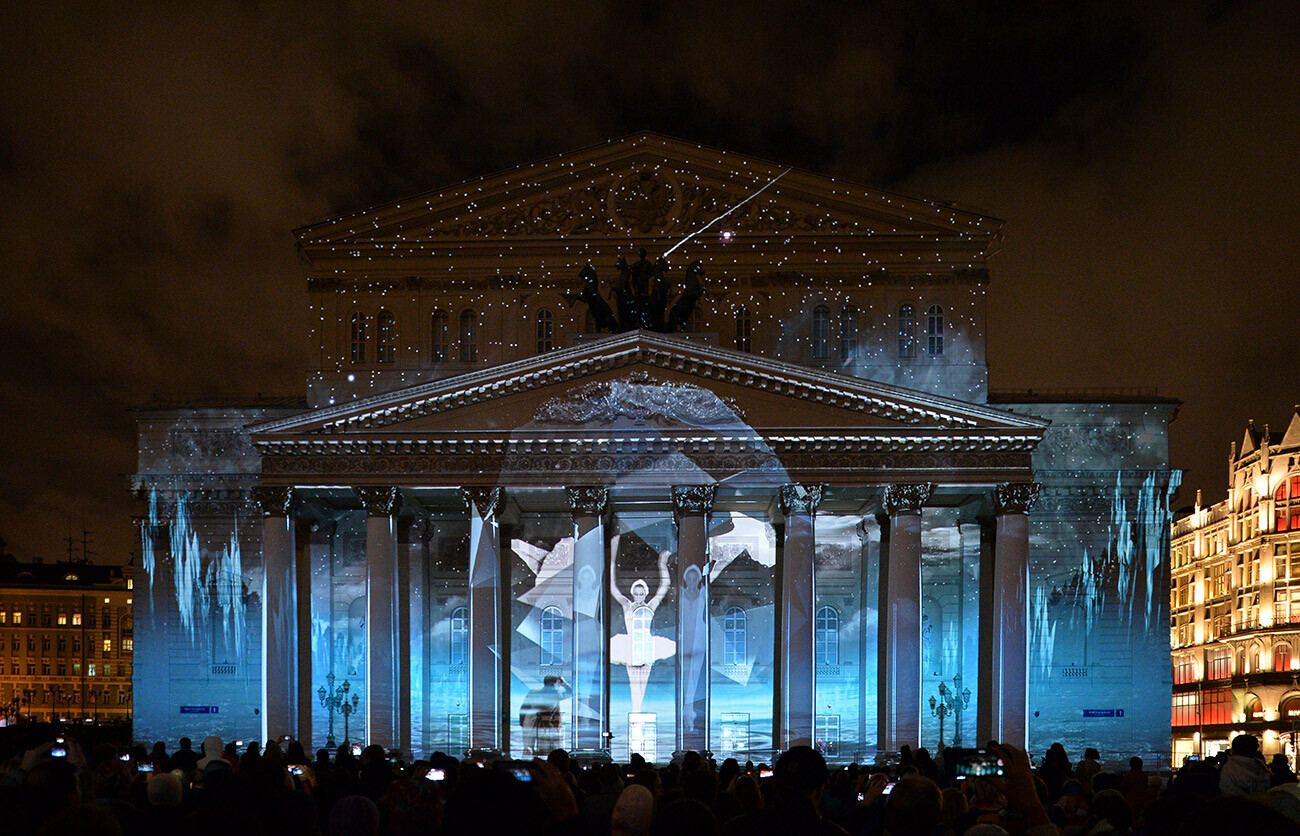 A Swan Lake-themed light installation on the building of the Bolshoi Theater in Moscow, 2015
A Swan Lake-themed light installation on the building of the Bolshoi Theater in Moscow, 2015
The ballet’s premiere took place on March 4, 1877, on the stage of Moscow’s Bolshoi Theater. The first variation of the choreography belonged to Vaclav Reisinger. However, the Moscow audience didn’t appreciate the ballet, believing the narrative and meaning to be shallow. And, although Tchaikovsky’s music was considered good, as a whole, the staging flopped and was soon closed.
4. It became iconic after the death of the composer
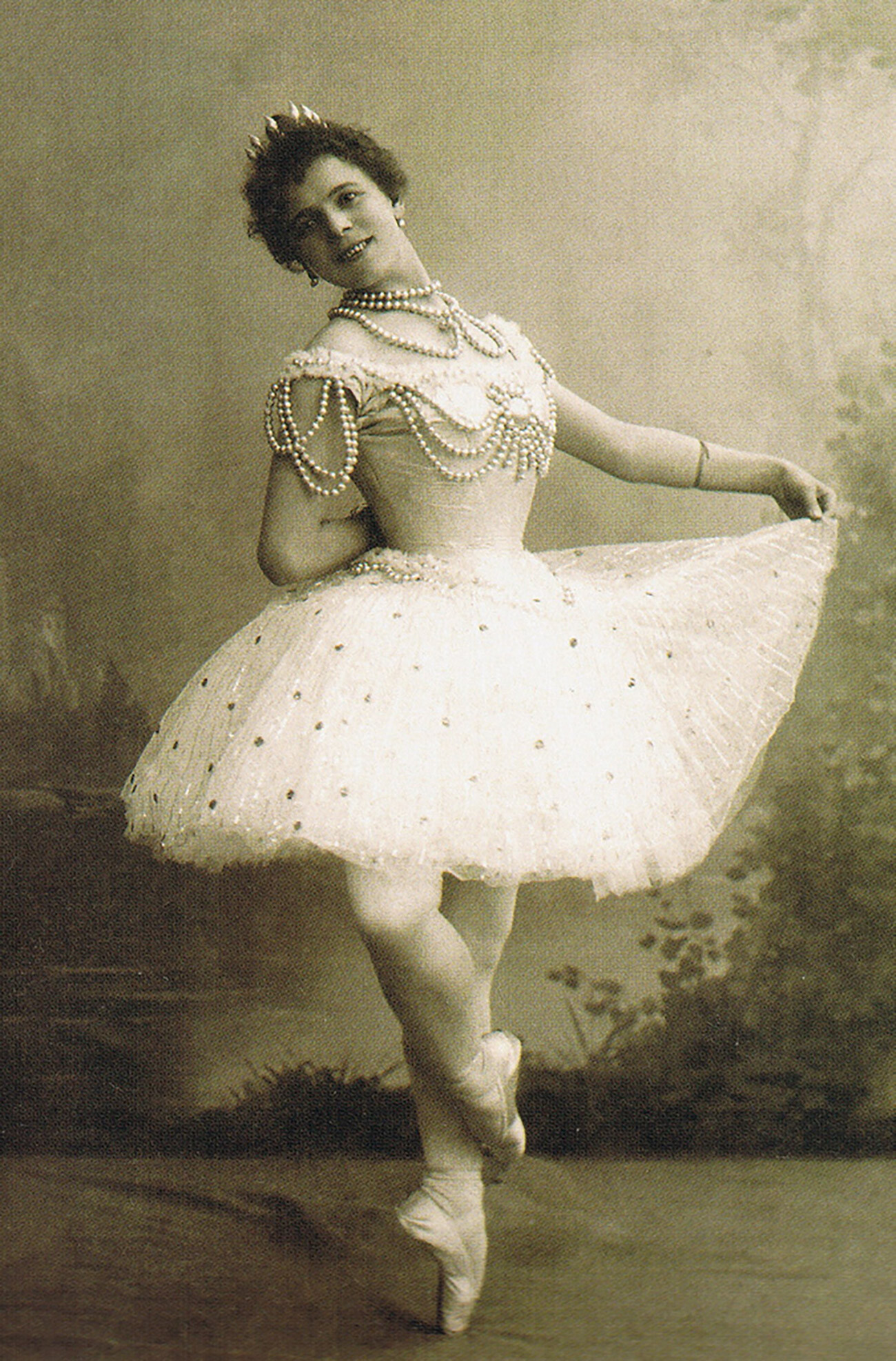 Pierina Legnani in the title role for Petipa’s staging
Pierina Legnani in the title role for Petipa’s staging
In 1895, two years after Tchaikovsky’s death, the ballet was given a second chance and staged again – this time on the stage of St. Petersburg’s Mariinsky Theater.
The staging by balletmaster Marius Petipa became iconic – his choreography is considered canonical. The ascension of Russian ballet is linked to this staging, which turned it into a brand that we now know and love today.
5. The story centers around the struggle between good and evil
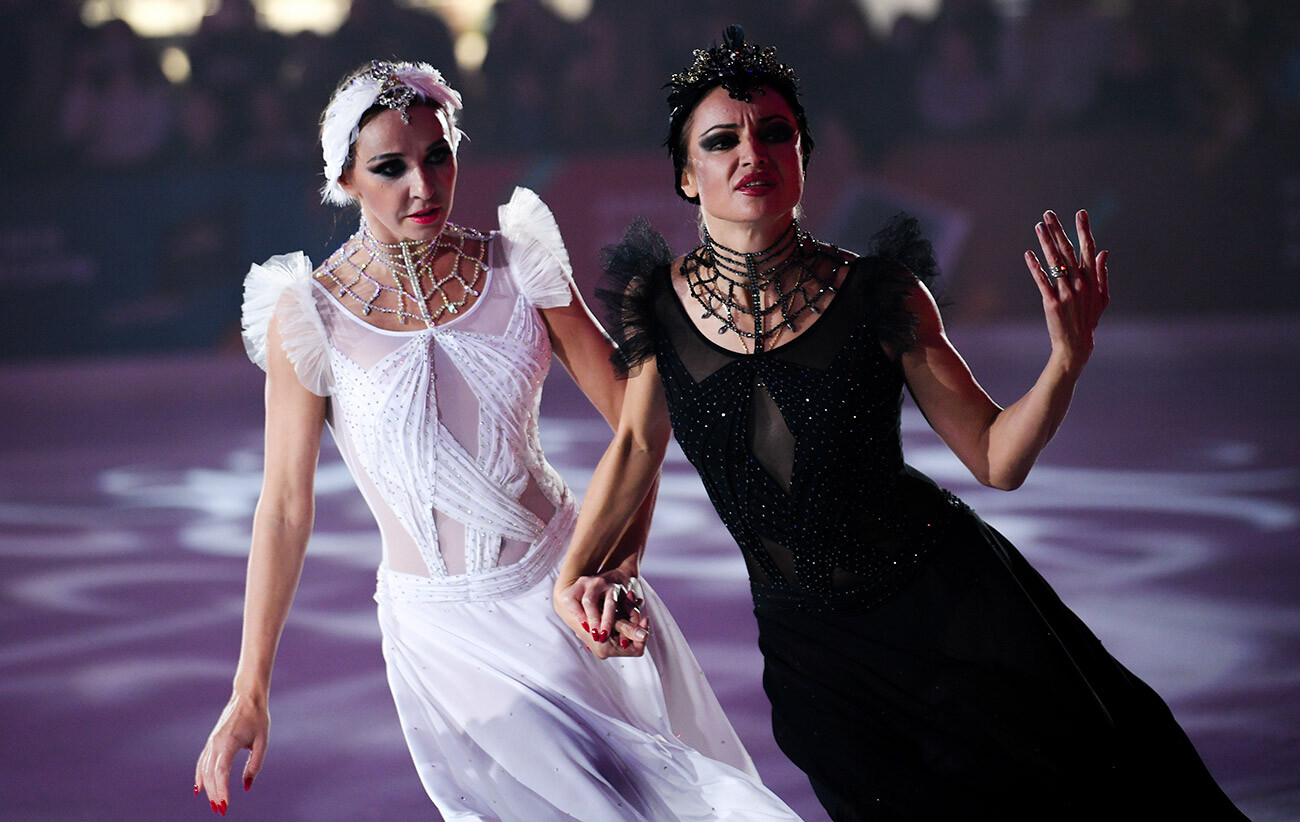 Odette and Odile in the ballet on ice
Odette and Odile in the ballet on ice
The core of the narrative is the struggle between the forces of good and evil. An evil sorcerer turns a beautiful girl Odette into a swan, because she refuses to become his wife. Prince Siegfried meets the beautiful swan Odette; she tells him her story and that only love can break the spell. The prince swears his love for her and vows to avenge her. But the evil sorcerer sends a dark twin of Odette – Odile – to Siegfried’s ball.
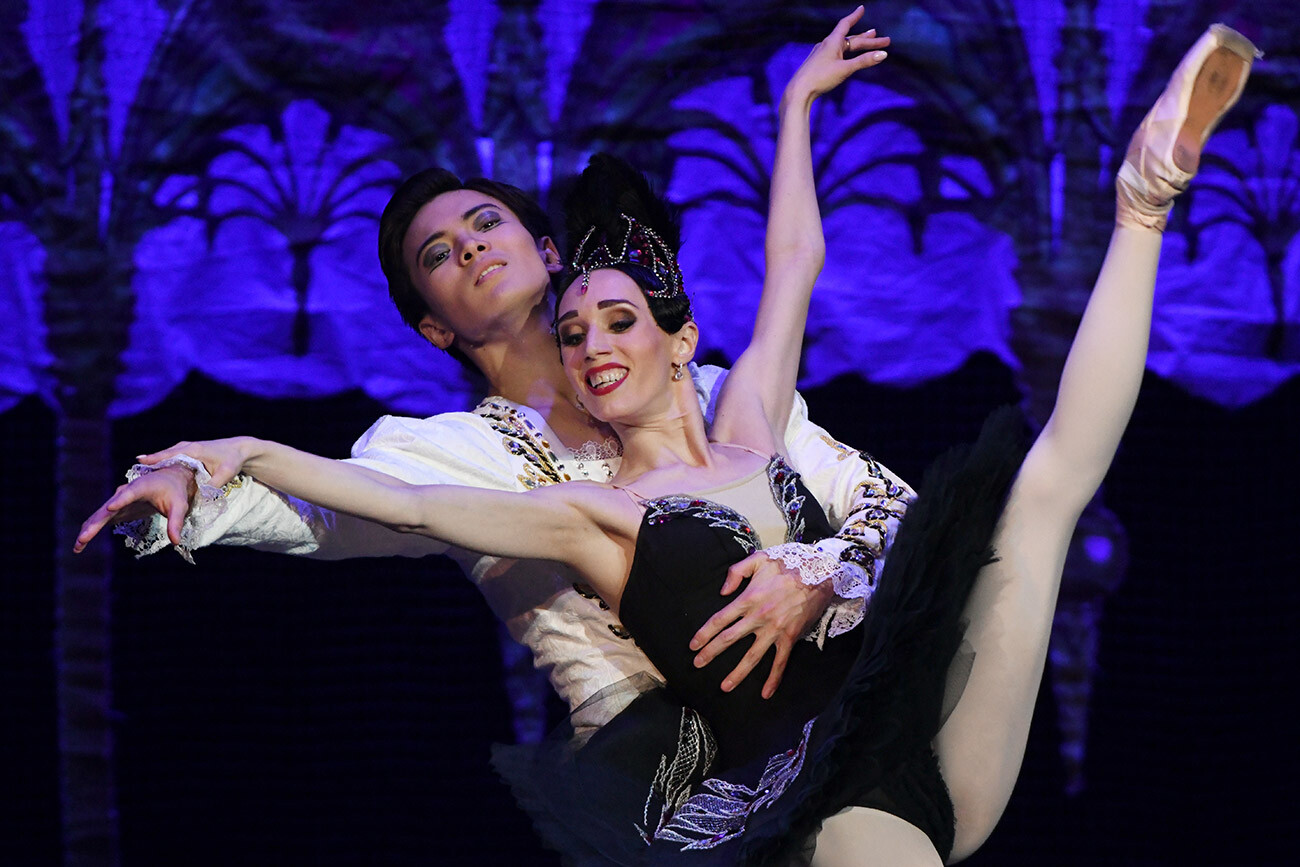 Itaru Nada as Prince Siegfried and Kristina Mikhailova as Odile on the stage of the Russian Academic Youth Theater, 2022
Itaru Nada as Prince Siegfried and Kristina Mikhailova as Odile on the stage of the Russian Academic Youth Theater, 2022
The prince doesn’t realize she has been replaced and introduces her as his bride – breaking his vow, as it turns out. Darkness descends upon the castle and the prince realizes that he has been tricked. Then, he rushes to the lake, battles the elements sent by the sorcerer and releases Odette from the evil spell.
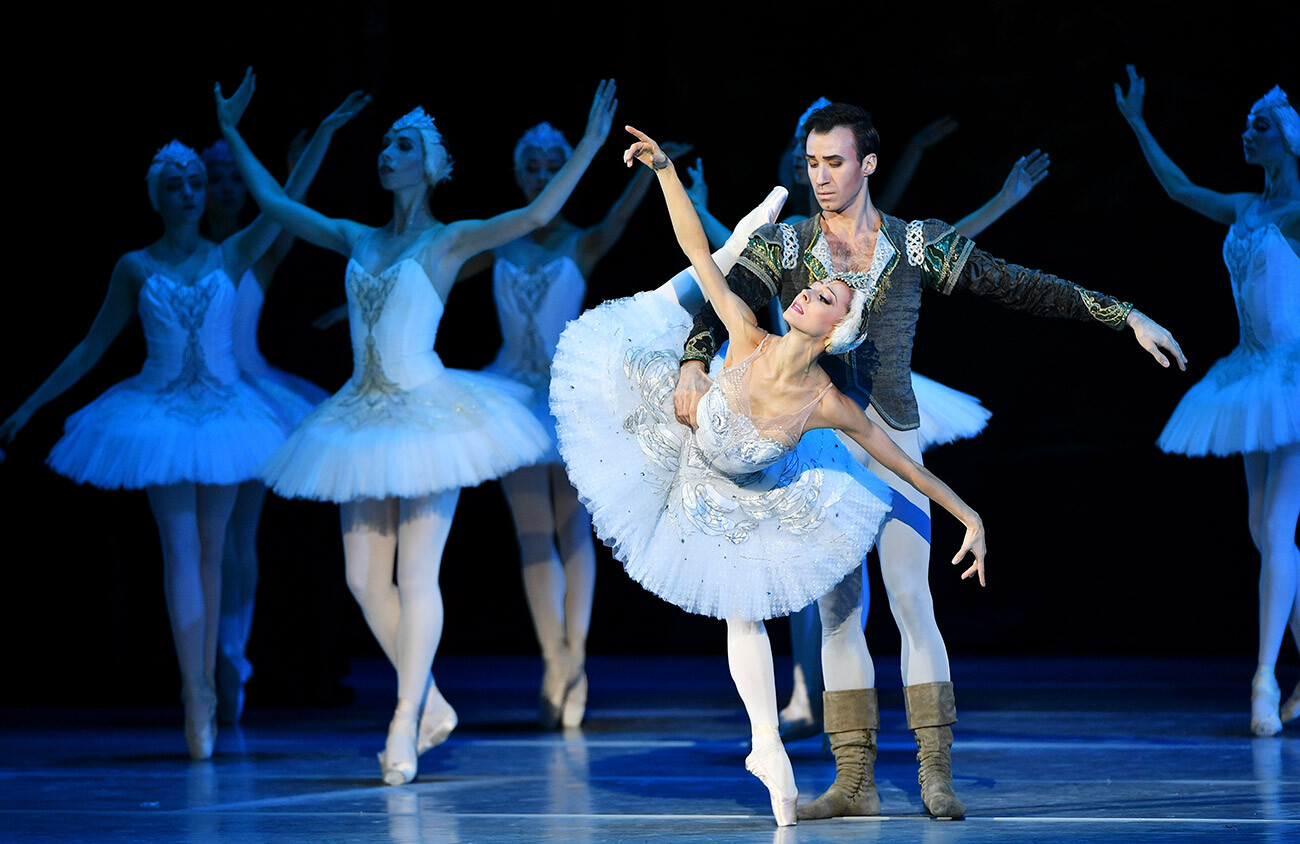 Natalia Ogneva as Odette and Artem Khoroshilov as Prince Siegfried on the stage of the State Kremlin Palace, 2019
Natalia Ogneva as Odette and Artem Khoroshilov as Prince Siegfried on the stage of the State Kremlin Palace, 2019
Odette and Odile are often played by the same ballerina, swapping a white dress for a black one.
6. Maya Plisetskaya was the leading swan for 30 years
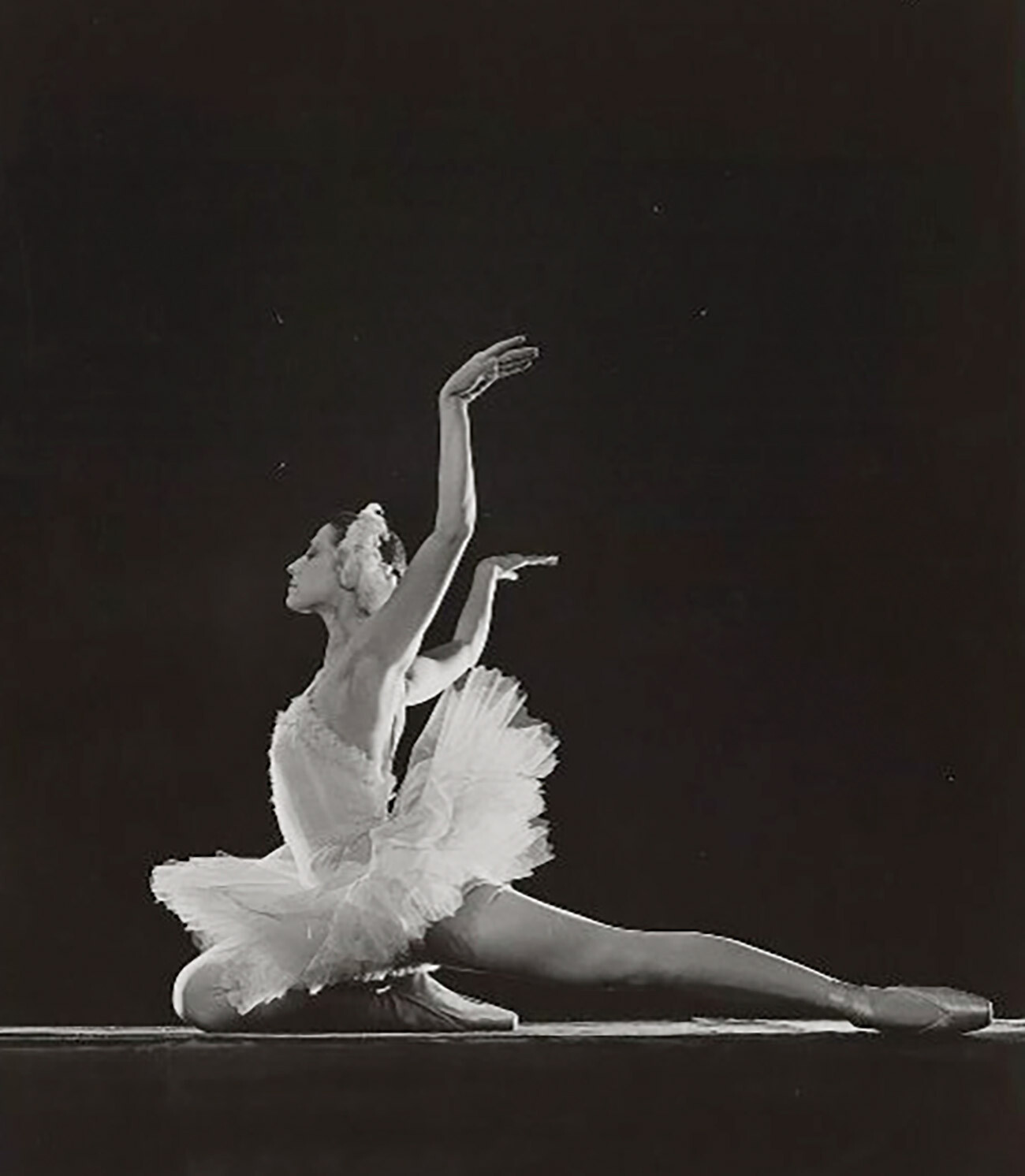 Maya Plisetskaya in Swan Lake ballet, 1960s
Maya Plisetskaya in Swan Lake ballet, 1960s
Maya Plisetskaya was one of the most legendary ballerinas to play the main role in this ballet. She performed in ‘Swan Lake’ for 30 (!!!) years, from 1947 to 1977, playing in no less than 800 performances. The genius ballerina possessed unbelievable elasticity and is, to this day, considered the best performer of the role.
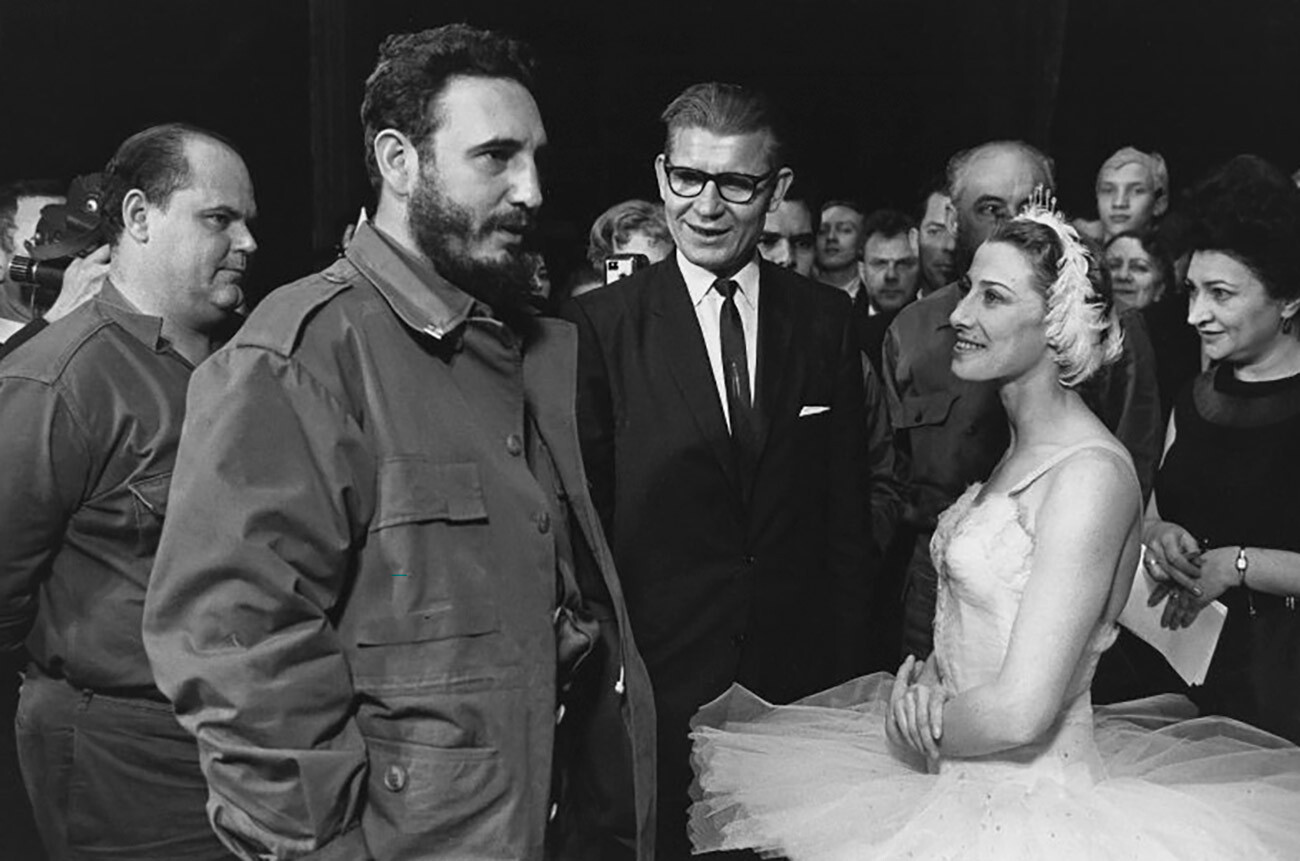 Fidel Castro and Maya Plisetskaya after the Swan Lake staging in the Bolshoi Theater, 1963
Fidel Castro and Maya Plisetskaya after the Swan Lake staging in the Bolshoi Theater, 1963
Joseph Stalin, Nikita Khrushchev and many foreign guests who were brought to watch Russian ballet, the highlight of the country, watched Plisetskaya perform the role of Odette-Odile.
7. The Dance of the Little Swans became the most famous dance in the world
Even if you have never seen ‘Swan Lake’, you have most definitely heard the music from this ballet and seen excerpts from the performance. This dance, in the staging of Marius Petipa, became a sort of a highlight of Russian ballet.
The many endearing parodies prove the popularity of the dance.
8. A new version of the ballet was made in the USSR by Yury Grigorovich
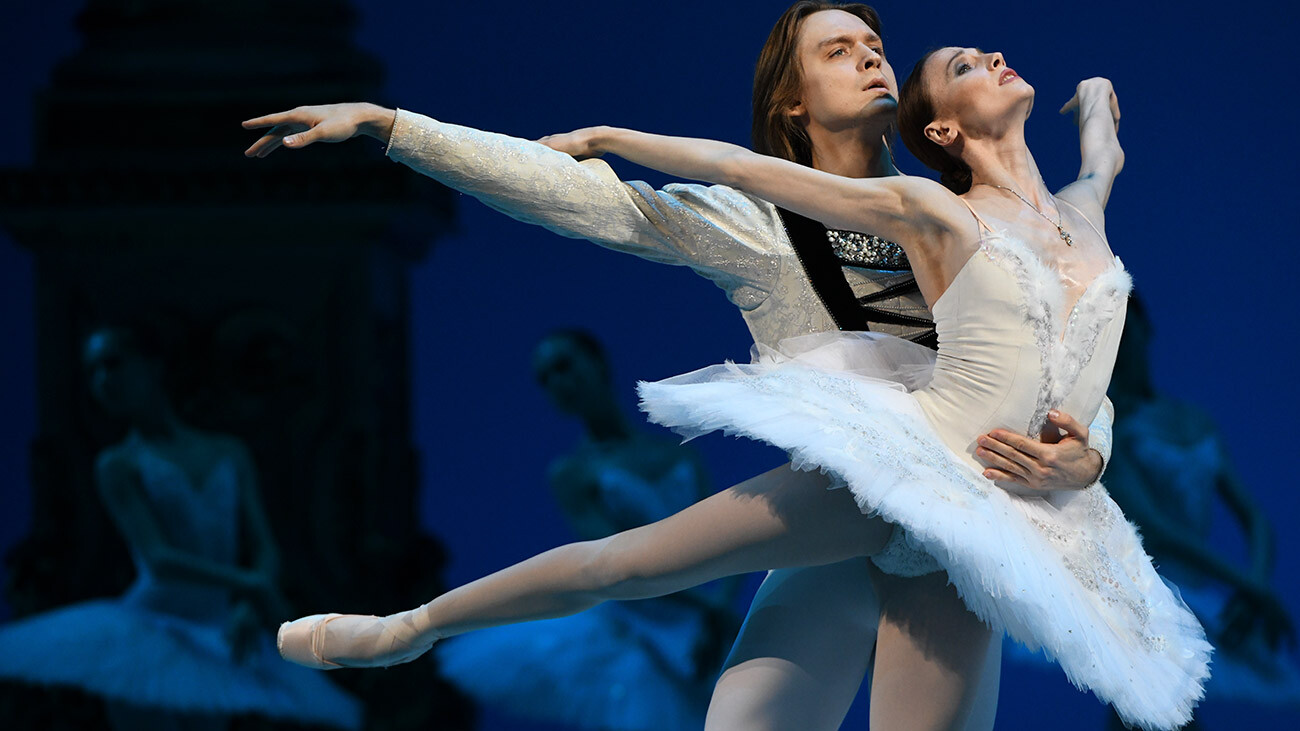 Svetlana Zakharova and Denis Rodkin in the Bolshoi Theater
Svetlana Zakharova and Denis Rodkin in the Bolshoi Theater
Today, the “flagship” version of the ballet is performed on the stage of the main theater of the country – the Bolshoi Theater. Soviet choreographer and director-producer Yuri Grigorovich was the author. He used elements of the classic staging by Petipa, adding his own vision of the narrative.
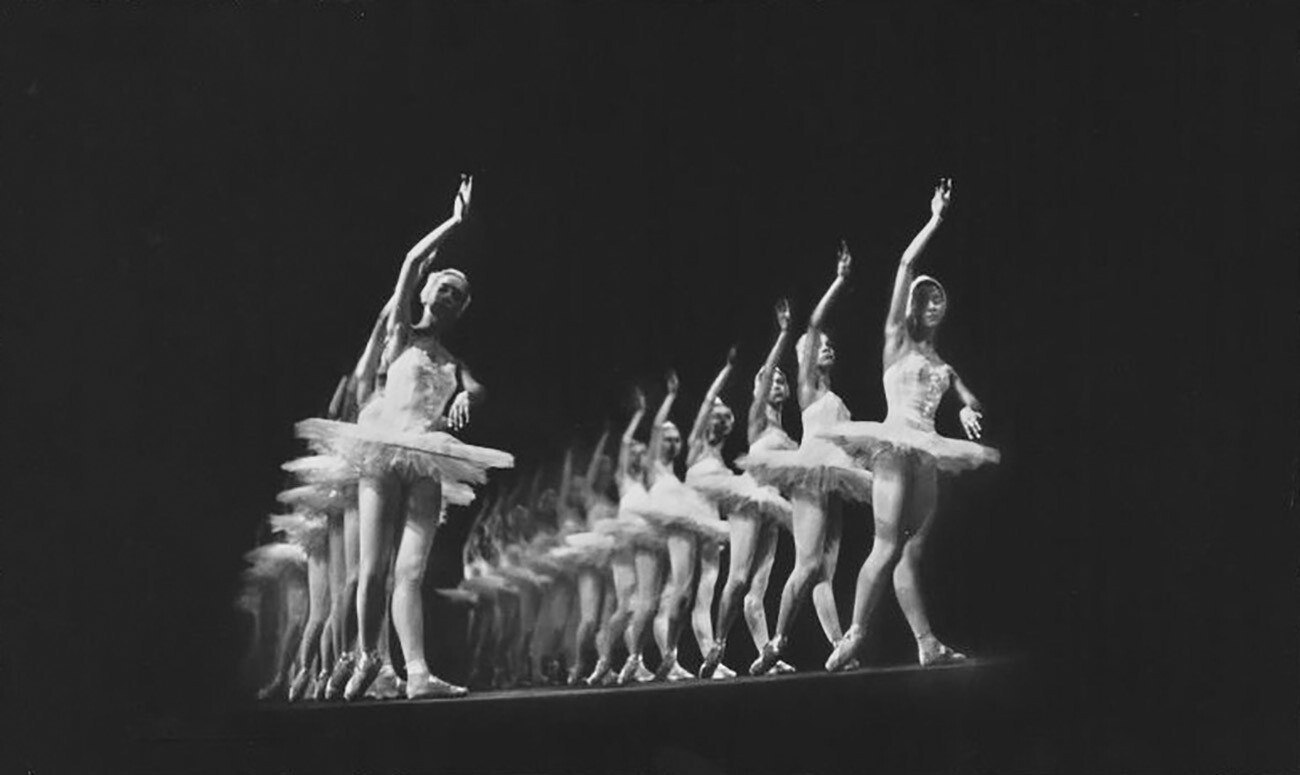 Swan Lake in the 1980s
Swan Lake in the 1980s
Premiering in 1969, Grigorovich wanted to reproduce the original idea of Tchaikovsky and add a tragic finale, but the Soviet stage demanded a happy ending and the victory of good against evil. Today, Svetlana Zakharova, one of the most famous Russian ballerinas, performs the main role.
9. It became a symbol of Soviet censorship
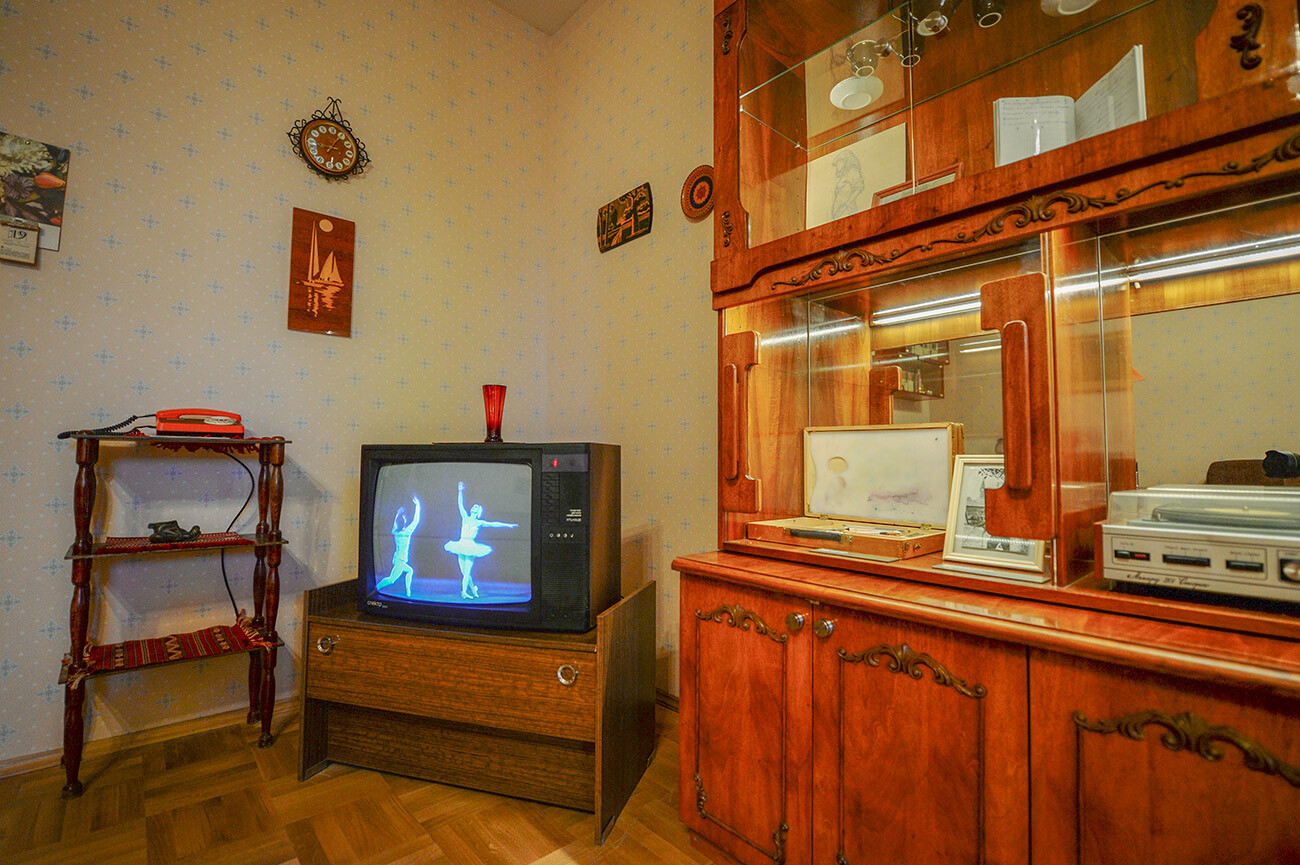 Swan Lake on TV became a meme
Swan Lake on TV became a meme
Everyone in the USSR knew: if there’s ‘Swan Lake’ on TV, that meant that something tragic had happened in the country. The ballet was shown when Soviet leaders passed away – Brezhnev, Andropov and Chernenko.
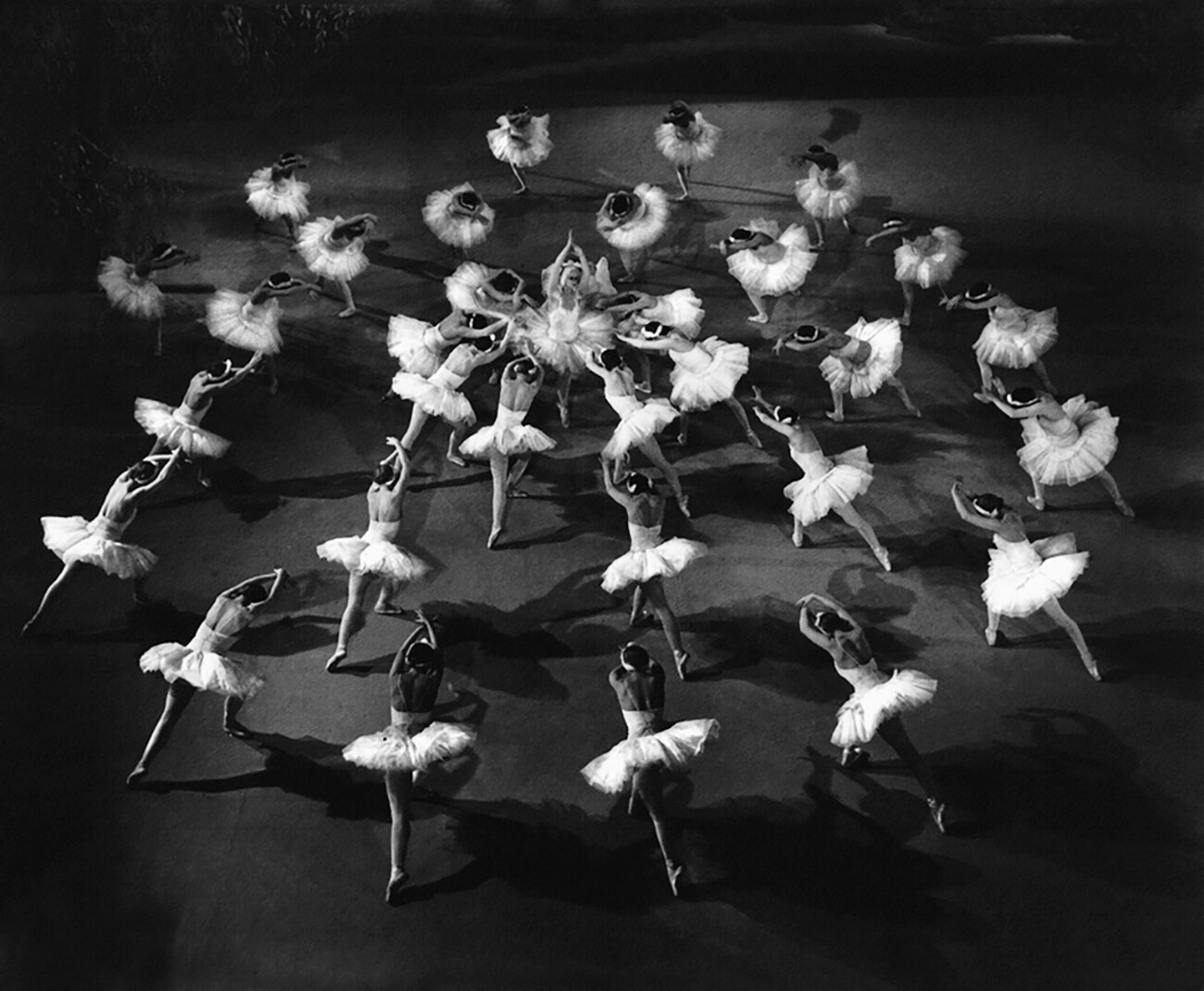 Swan Lake in the Bolshoi Theater, 1950s
Swan Lake in the Bolshoi Theater, 1950s
Iconic comedy director Leonid Gaidai also ridiculed that fact. In his movie ‘Kidnapping, Caucasian Style’ (1967), the ballet performance on TV accompanies the scene of the bandits threatening the main character.
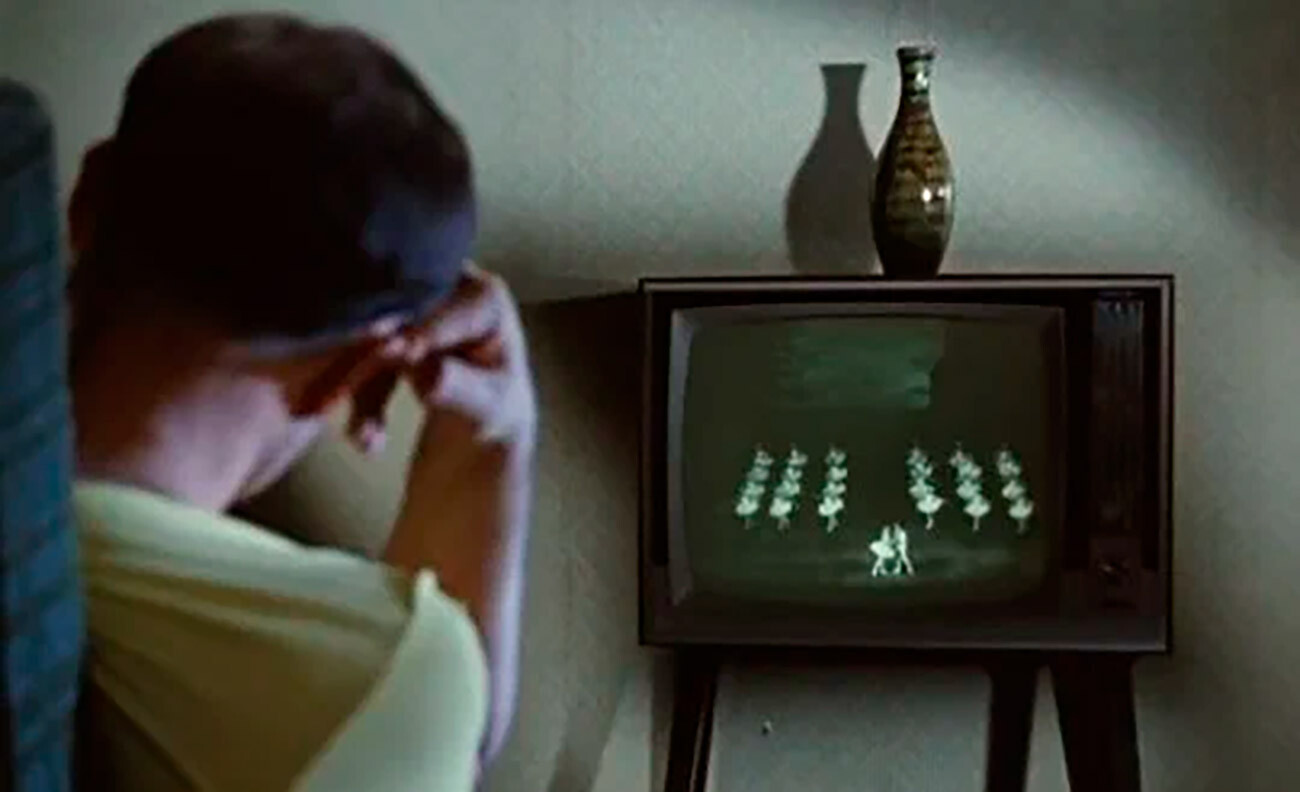 A still from the movie ‘Kidnapping, Caucasian Style’ (1967)
A still from the movie ‘Kidnapping, Caucasian Style’ (1967)
But, the ballet became a true meme after the 1991 August coup, when an attempt was made to restore the USSR and topple Mikhail Gorbachev. Instead of a live report from the scene, the TVs in every apartment broadcast the ‘Dance of the Little Swans’.
10. It became a field for experimentation
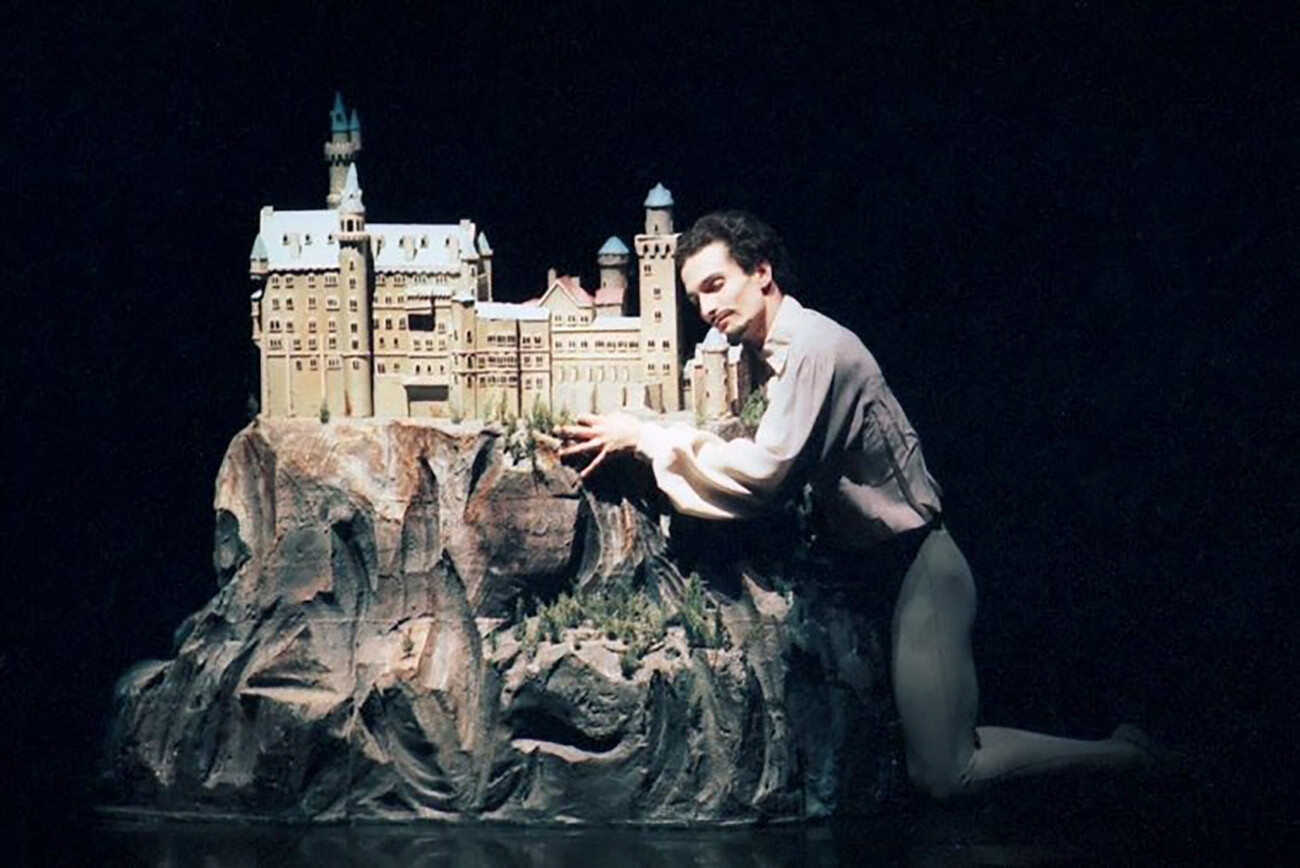 John Neumeier’s ballet ‘Illusions Like Swan Lake’
John Neumeier’s ballet ‘Illusions Like Swan Lake’
Ballet has almost become popular culture. It’s staged in leading theaters across the world, as well as in children’s studios and amateur groups. To the music of Tchaikovsky, directors and balletmasters experiment, competing in originality.
Rudolf Nureyev produced his own version in 1984 in Paris; he also played the role of the prince (and put more emphasis and attention on him than on the swans). In 1995, the provocative staging of choreographer Matthew Bourne premiered on the stage of London’s Sadler’s Wells Theater, in which men played the roles of the swans.
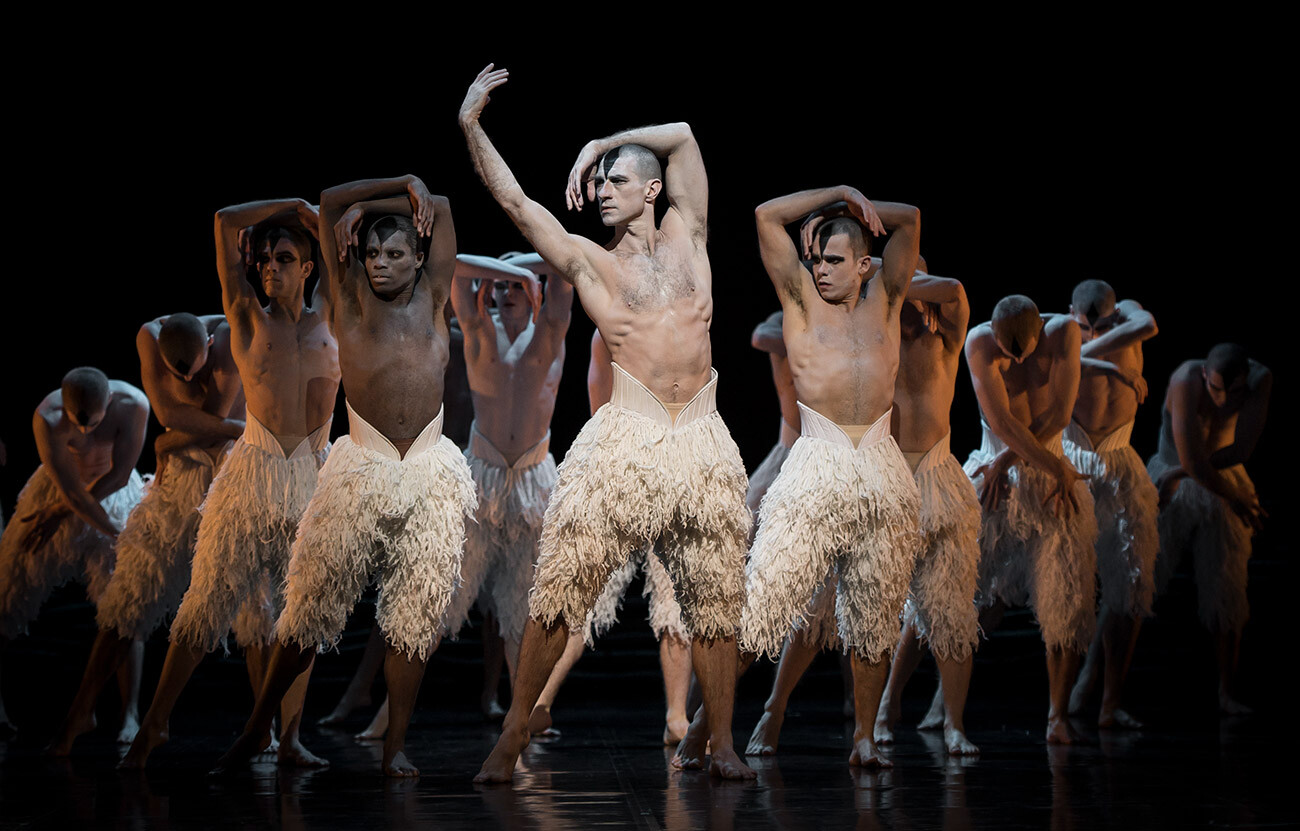 Men as swans in the staging of Matthew Bourne
Men as swans in the staging of Matthew Bourne
In 2011, Swede Fredrik Rydman presented the staging of ‘Swan Lake: Reloaded’, in which the choreography was in the style of street dance and the plot was moved to the Red-light district…





